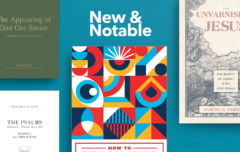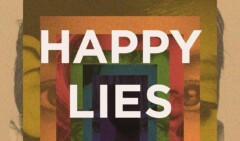
Today we come to our second reading in Gresham Machen’s classic book Christianity & Liberalism and just for the occasion I’ve got a nice new banner graphic (isn’t it pretty?). Our reading assignment for this week was the second chapter which is titled simply “Doctrine.”
I know that many of the people who will read this blog post are not participating in the Reading Classics program, so I’d like to give you something to chew on. To that end I am going to post an excerpt from the chapter that I think you will find interesting. But first, let me give a bit of context. Some time ago I reviewed Brian McLaren’s book A New Kind of Christianity and expressed, as have so many others, that his arguments were answered back in the early twentieth century. What McLaren declares as new is simply Liberalism under a new name.
In this chapter Machen touches upon couple of overused sentiments about Christianity that have existed far longer than we may have thought: that Christianity is life rather than doctrine and that experience is more important than creeds. And with that in mind, read what Machen says about the Liberalism of his day. This could just as easily be said of what many hold to be Christianity today.
Even if it were an attack not upon the Bible but only upon the great historic presentations of Biblical teaching, it would still be unfortunate. If the Church were led to wipe out of existence all products of the thinking of nineteen Christian centuries and start fresh, the loss, even if the Bible were retained, would be immense. When it is once admitted that a body of facts lies at the basis of the Christian religion, the efforts which past generations have made toward the classification of the facts will have to be treated with respect. In no branch of science would there be any real advance if every generation started fresh with no dependence upon what past generations have achieved. Yet in theology, vituperation of the past seems to be thought essential to progress. And upon what base slanders the vituperation is based! After listening to modern tirades against the great creeds of the Church, one receives rather a shock when one turns to the Westminster Confession, for example, or to that tenderest and most theological of books, the “Pilgrim’s Progress” of John Bunyan, and discovers that in doing so one has turned from shallow modern phrases to a “dead orthodoxy” that is pulsating with life in every word. In such orthodoxy there is life enough to set the whole world aglow with Christian love.
As a matter of fact, however, in the modern vituperation of “doctrine,” it is not merely the great theologians or the great creeds that are being attacked, but the New Testament and our Lord Himself. In rejecting doctrine, the liberal preacher is rejecting the simple words of Paul’ “Who loved me and gave Himself for me,” just as much as the homoousion of the Nicene Creed. For the word “doctrine” is really used not in its narrowest, but in its broadest sense. The liberal preacher is really rejecting the whole basis of Christianity, which is a religion founded not on aspirations, but on facts. Here is found the most fundamental difference between liberalism and Christianity–liberalism is altogether in the imperative mood, while Christianity begins with a triumphant indicative; liberalism appeals to man’s will, while Christianity announces, first, a gracious act of God.
Machen goes on to offer a couple of clarifications about all of this. First, “we do not mean that if doctrine is sound it makes no difference about life. On the contrary, it makes all the difference in the world.” And second, “we do not mean, in insisting upon the doctrinal basis of Christianity, that all points of doctrine are equally important. It is perfectly possible for Christian fellowship to be maintained despite differences of opinion.” In other words, he fights hard against the false impression that he espouses a kind of dead orthodoxy, a faith built upon doctrine that really makes no difference to a life. Sound Christian living must be built upon a firm foundation of sound doctrine.
Overall I found this week’s reading dense and a wee bit difficult. That may have more to do with fatigue than the book itself. However, there were several sections like the one I quoted above that provided very insightful looks into the Christian landscape as it existed then and as it exists (or re-exists) today.
That was my big takeaway from this week. I’d love to hear what you discovered in this week’s reading.
Next Week
For next week please read chapter 3, “God & Man.”
Your Turn
The purpose of this program is to read these books together. So if you have something to say, whether a comment or criticism or question, feel free to use the comment section for that purpose.
Note: If you are mentioning Reading Classics Together on Twitter, we’ve got the hashtag #rctmachen set aside for that purpose.









